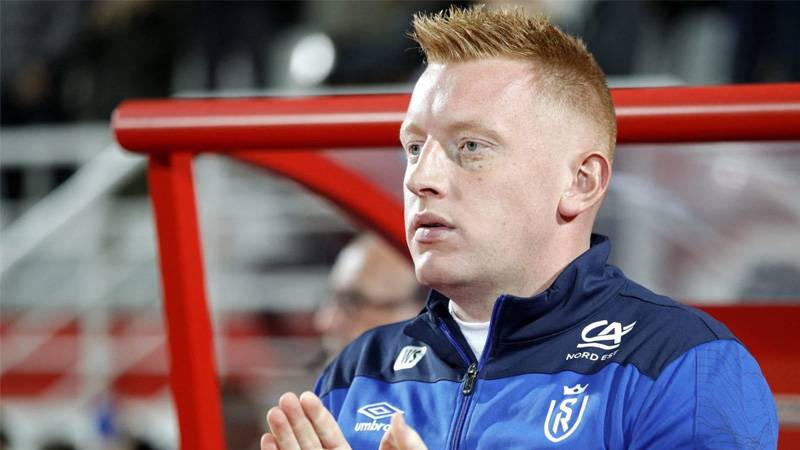How Football Manager addict became a manager: Who is Will Still?
Why and how did Will Still become a football manager? Here is his story: Will Still, Europe's youngest coach, snatched that seat with his equipment and effort, not by playing FM.

We heard the name of English coach Will Still for the first time last October. When he became the interim coach of Stade de Reims, one of the French Ligue 1 teams, it was thought that this would not last very long. With someone more experienced, the 30-year-old British coach who had been appointed to replace Oscar Garcia would be back as an assistant in a few weeks.
But it never was. When Still took office, he was 17th and quickly rallied Reims from the relegation zone. They entered the World Cup in 11th place. Thereupon, the club owner, who was very pleased with both the results and the game, turned his temporary role into a permanent one. Will Still's team had a streak of 19-game wins and climbed to eighth place on the scoreboard. They have been playing for a while now, let alone the danger of falling, to participate in the European cups.
He pays a penalty of 515 thousand TL per game.
Since Will Still is still studying for the UEFA Pro license, Stade de Reims is willing to pay a fine of 25 thousand euros (approximately 515 thousand TL) for each match due to the violation of the instructions.
After such a flash start, it is normal for everyone, especially the British media, to show interest in Will Still. But what I found interesting was that Still's success was linked to the famous computer game Football Manager, which he played in his childhood and youth. Some of the videos about him were titled: “How the Football Manager Genius Became a Technical Man”; “How did a Football Manager addict become a coach?” However, the truth of the matter is not so.
Of course, playing FM may have a role in the development of his passion for football, but being a coach in a top league at this young age is all about his upbringing, his multiculturalism, the education he received, and the effort he put into this profession.
First of all, Still, born and educated in Belgium to an English family, speaks not only English but also French and Flemish. Those who watch his videos in Reims will immediately notice that he is leading the training in two languages.
He went to school, worked at every stage
Also, realizing early on that he could not advance in professional football at a young age, he went to Myerscough College in Northwest England for his post-high school football coaching training and graduated with a very good grade from this school. In the same period, he coached Preston North End club's U14 team as part of the training program. Then he returned to Belgium and started to chase business. As he told The Coaches Voice in February, after 26 nos, St. At 21, Truiden got his first job from his trainer Ferreira. After that, he has nine seasons as an analyst, assistant coach, and interim coach. In other words, there is no such thing as a parachute landing on his current mission thanks to such a computer game. For now, he is happy with his job in Reims. On the other hand, he states that he dreams of being a manager in the Premier League one day, but that he is still very young.
There is a situation that Will Still's example explains very well: Coaching in modern football today is a much more complex task than in the past. It doesn't end with choosing 11 players and putting them on the field. And to be successful in this business, it is necessary to understand many different parameters and to gain years of experience in many subjects. You don't need to come from professional acting for that.
Is it easy to quit football and move to the club?
For this reason, I understand much better the panic of famous professional football players in Europe. In the past, it was much easier to sit in the coach's chair after quitting football in a big team. The one who made his jubilee would arrange the diploma, use his relations with his old club, and go to the club.
However, in the last 20 years, we have seen, and we still see, that the names that did not come from such a high-level football player and played in the lower leagues came to the fore, and we still see it: Mourinho, Tuchel, Klopp, Spaletti. We have also seen some famous former football players such as Frank Lampard and Andrea Pirlo fail utterly.
Now professional football players face much tighter competition. Coaches are running around, who gave up acting early, pondered on tactical issues in their early 20s, and improved themselves in analysis, communication, and player development. A good example was Julien Nagelsmann (35), who until recently was the head of Bayern Munich. Likewise, in the Premier League, Leeds United is headed by Spaniard Ruben Selles (39), who has no acting experience. West Brom coach Carlos Corberan (39), who was also the coach of Okay Yokuslu in the Championship, was a coach who could not go up from the B team. Here is Will Still as the last example of this model. I predict that the number of colleagues who follow his path will increase in the coming years.
